『武士道 Bushido 』-新渡戸稲造(Inazo Nitobé)-
Chapter 04
(Courage, the Spirit of Daring and Bearing 「勇」いかにして肝を錬磨するか)
Bushido, the Soul of Japan by Inazo Nitobe
[Book]
[reading]
・Chapter TOP 新渡戸稲造(Inazo Nitobé)TOP
・Chapter 00(Prefaces 序文)
・Chapter 01(Bushido as an Ethical System 武士道とは)
・Chapter 02(Sources of Bushido 武士道の源)
・Chapter 03(Rectitude or Justice 「義」)
・Chapter 04(Courage, the Spirit of Daring and Bearing 「勇」)
・Chapter 05(Benevolence, the Feeling of Distress 「仁」)
・Chapter 06(Politeness 「礼」)
・Chapter 07(Veracity or Truthfulness 「誠」)
・Chapter 08(Honor 「名誉」)
・Chapter 09(The Duty of Loyalty 「忠義」)
・Chapter 10(Education and Training of a Samurai 武士は何を学びどう己を磨いたか)
・Chapter 11(Self-Control 人に勝ち己に勝つために)
・Chapter 12(The Institutions of Suicide and Redress 「切腹」)
・Chapter 13(The Sword, the Soul of the Samurai 「刀」)
・Chapter 14(The Training and Position of Woman 武士道が求めた女性の理想像)
・Chapter 15(The Influence of Bushido 「大和魂」)
・Chapter 16(Is Bushido Still Alive? 武士道は蘇るか)
・Chapter 17(The Future of Bushido 武士道から何を学ぶか)
・[修養]、
・[自警録]
to the consideration of which we shall now return. Courage was scarcely deemed worthy to be counted among virtues, unless it was exercised in the cause of Righteousness. In his "Analects" Confucius defines Courage by explaining, as is often his wont, what its negative is. "Perceiving what is right," he says, "and doing it not, argues lack of courage." Put this epigram into a positive statement, and it runs, "Courage is doing what is right." To run all kinds of hazards, to jeopardize one's self, to rush into the jaws of death—these are too often identified with Valor, and in the profession of arms such rashness of conduct—what Shakespeare calls, "valor misbegot"—is unjustly applauded; but not so in the Precepts of Knighthood. Death for a cause unworthy of dying for, was called a "dog's death." "To rush into the thick of battle and to be slain in it," says a Prince of Mito, "is easy enough, and the merest churl is equal to the task; but," he continues, "it is true courage to live when it is right to live, and to die only when it is right to die," and yet the Prince had not even heard of the name of Plato, who defines courage as "the knowledge of things that a man should fear and that he should not fear." A distinction which is made in the West between moral and physical courage has long been recognized among us. What samurai youth has not heard of "Great Valor" and the "Valor of a Villein?"
Valor, Fortitude, Bravery, Fearlessness, Courage, being the qualities of soul which appeal most easily to juvenile minds, and which can be trained by exercise and example, were, so to speak, the most popular virtues, early emulated among the youth. Stories of military exploits were repeated almost before boys left their mother's breast. Does a little booby cry for any ache? The mother scolds him in this fashion: "What a coward to cry for a trifling pain! What will you do when your arm is cut off in battle? What when you are called upon to commit harakiri?" We all know the pathetic fortitude of a famished little boy-prince of Sendai, who in the drama is made to say to his little page, "Seest thou those tiny sparrows in the nest, how their yellow bills are opened wide, and now see! there comes their mother with worms to feed them. How eagerly and happily the little ones eat! but for a samurai, when his stomach is empty, it is a disgrace to feel hunger." Anecdotes of fortitude and bravery abound in nursery tales, though stories of this kind are not by any means the only method of early imbuing the spirit with daring and fearlessness. Parents, with sternness sometimes verging on cruelty, set their children to tasks that called forth all the pluck that was in them. "Bears hurl their cubs down the gorge," they said. Samurai's sons were let down the steep valleys of hardship, and spurred to Sisyphus-like tasks. Occasional deprivation of food or exposure to cold, was considered a highly efficacious test for inuring them to endurance. Children of tender age were sent among utter strangers with some message to deliver, were made to rise before the sun, and before breakfast attend to their reading exercises, walking to their teacher with bare feet in the cold of winter; they frequently—once or twice a month, as on the festival of a god of learning,—came together in small groups and passed the night without sleep, in reading aloud by turns. Pilgrimages to all sorts of uncanny places—to execution grounds, to graveyards, to houses reputed to be haunted, were favorite pastimes of the young. In the days when decapitation was public, not only were small boys sent to witness the ghastly scene, but they were made to visit alone the place in the darkness of night and there to leave a mark of their visit on the trunkless head.
Does this ultra-Spartan system of "drilling the nerves" strike the modern pedagogist with horror and doubt—doubt whether the tendency would not be brutalizing, nipping in the bud the tender emotions of the heart? Let us see what other concepts Bushido had of Valor.
The spiritual aspect of valor is evidenced by composure—calm presence of mind. Tranquillity is courage in repose. It is a statical manifestation of valor, as daring deeds are a dynamical. A truly brave man is ever serene; he is never taken by surprise; nothing ruffles the equanimity of his spirit. In the heat of battle he remains cool; in the midst of catastrophes he keeps level his mind. Earthquakes do not shake him, he laughs at storms. We admire him as truly great, who, in the menacing presence of danger or death, retains his self-possession; who, for instance, can compose a poem under impending peril or hum a strain in the face of death. Such indulgence betraying no tremor in the writing or in the voice, is taken as an infallible index of a large nature—of what we call a capacious mind (Yoyū), which, for from being pressed or crowded, has always room for something more.
It passes current among us as a piece of authentic history, that as Ōta Dokan, the great builder of the castle of Tokyo, was pierced through with a spear, his assassin, knowing the poetical predilection of his victim, accompanied his thrust with this couplet—
"Ah! how in moments like these
Our heart doth grudge the light of life;"
whereupon the expiring hero, not one whit daunted by the mortal wound in his side, added the lines—
"Had not in hours of peace,
It learned to lightly look on life."
There is even a sportive element in a courageous nature. Things which are serious to ordinary people, may be but play to the valiant. Hence in old warfare it was not at all rare for the parties to a conflict to exchange repartee or to begin a rhetorical contest. Combat was not solely a matter of brute force; it was, as, well, an intellectual engagement.
Of such character was the battle fought on the bank of the Koromo River, late in the eleventh century. The eastern army routed, its leader, Sadato, took to flight. When the pursuing general pressed him hard and called aloud—"It is a disgrace for a warrior to show his back to the enemy," Sadato reined his horse; upon this the conquering chief shouted an impromptu verse—
"Torn into shreds is the warp of the cloth" (koromo).
Scarcely had the words escaped his lips when the defeated warrior, undismayed, completed the couplet—
"Since age has worn its threads by use."
Yoshiie, whose bow had all the while been bent, suddenly unstrung it and turned away, leaving his prospective victim to do as he pleased. When asked the reason of his strange behavior, he replied that he could not bear to put to shame one who had kept his presence of mind while hotly pursued by his enemy.
The sorrow which overtook Antony and Octavius at the death of Brutus, has been the general experience of brave men. Kenshin, who fought for fourteen years with Shingen, when he heard of the latter's death, wept aloud at the loss of "the best of enemies." It was this same Kenshin who had set a noble example for all time, in his treatment of Shingen, whose provinces lay in a mountainous region quite away from the sea, and who had consequently depended upon the Hōjō provinces of the Tokaido for salt. The Hōjō prince wishing to weaken him, although not openly at war with him, had cut off from Shingen all traffic in this important article. Kenshin, hearing of his enemy's dilemma and able to obtain his salt from the coast of his own dominions, wrote Shingen that in his opinion the Hōjō lord had committed a very mean act, and that although he (Kenshin) was at war with him (Shingen) he had ordered his subjects to furnish him with plenty of salt—adding, "I do not fight with salt, but with the sword," affording more than a parallel to the words of Camillus, "We Romans do not fight with gold, but with iron." Nietzsche spoke for the samurai heart when he wrote, "You are to be proud of your enemy; then, the success of your enemy is your success also." Indeed valor and honor alike required that we should own as enemies in war only such as prove worthy of being friends in peace. When valor attains this height, it becomes akin to
Read文献、
book文献
日本の魂ー日本思想の解明ー
日本的思考の根源を見る。
”忠義”は追従ではない。”名誉”は求める心である。
(第三章 義-あるいは正義について)
サムライにとって、 卑怯な行動や不正な行動ほど恥ずべきものはない。
(第九章 忠義)
武士道は、われわれの良心を主君の奴隷となすべきことを要求しなかった
(第十章 武士の教育)
武士道は経済とは正反対のものである。それは貧しさを誇る。
(第十一章 克己)
心の奥底の思いや感情—特に宗教的なもの—を雄弁に述べ立てることは、日本人の間では、それは深遠でもなく、 誠実でもないことの疑いないしるしだと受け取られた。
(第十四章 女性の教育と地位)
妻がその夫、家庭そして家族のために身を捨てることは、男が主君と国のために身を捨てるのと同様、自発的かつみごとになされた。
|
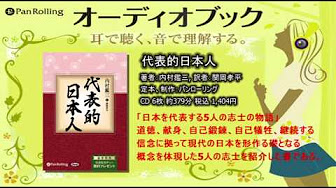
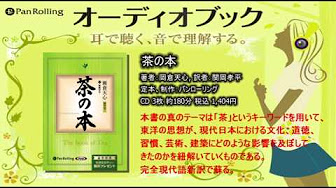
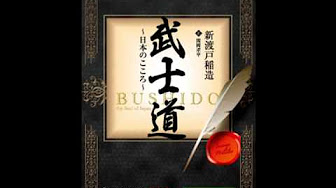
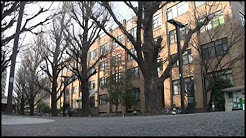

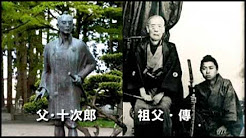

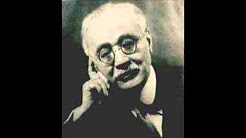



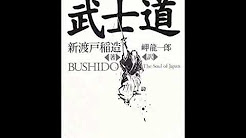
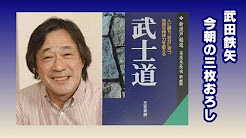
・新渡戸稲造
第1弾「世界を結ぶ『志』~新渡戸稲造の生涯~」、
第2弾「未来につながる『道』~新渡戸稲造の武士道~」、
第3弾「すべてに根ざす『愛』~新渡戸稲造の苦悩~」、
・ 新渡戸稲造の至極の名言集
・「新渡戸稲造の名言」20話
| |
・Bushido: The Soul of Japan by Inazo Nito(1-18)
・Bushido: The Soul of Japan by Inazo Nitobe(1-18)
・武士道「BUSHIDO」Japanese Ver.
・≪AI朗読≫武士道
・【武田鉄矢】『武士道』完全版
|
Bushido, the Soul of Japan
『武士道は定式化されたものではないが、昔もそして今も、日本人を鼓舞し、わが国を動かす原動力なのである』
日本人が日本人たりえる所以。
国家としての歴史的哲学体系を持たない日本の、現代社会においても尚、我々の血肉となり、在り続ける道徳律の根幹は「武士道」にあり。
日本人 新渡戸稲造博士が世界に発信した日本人論。
世代と国境を越え今なお読み継がれている世界的ベストセラー。
西洋・東洋の文化・哲学・思想と照らし合わせながら、その特異性と唯一無二の行動規範・心の拠り所を詳細に解説した普遍の書が、完全現代語訳、プロフェッショナルのナレーションで今蘇る。
21世紀。世界第三位の経済大国であるわが国日本。
政治的にも文化的にもより身近に世界と対峙する現代においてこそ、われわれの心の中に脈々と流れ続ける、日本人が日本人足らしめる「武士道」の精神を紐解く時なのではないだろうか。
本書は1世紀の時を超えた今も尚色褪せること無く、むしろその博識と見解、交える事例とそのユーモアに溢れた表現により現代人の我々にも実に痛快に日本の心「武士道」を理解させてくれる。
「武士道」がいつどのようにして始まったのか、それはどんな特徴を持ち、どのようなことを教えようとしているのか、武士以外の一般民衆にどのような影響を与えたのか、その影響がどれほど永く続いているか。
様々な角度・キーワードで武士の心得、さむらいの心の在り方をリレー形式で綴っている。
世界有数の犯罪率の低さ、大災害時での規律、自発的な他助の精神と行動は時代を超えて、親から子へと語り継がれてきた「道徳律」が存在し続けていることを如実に表している。
知っているようで知らない「日本の心」が、ここに明かされている。
内容抜粋
「今何とおっしゃいましたか?」と敬愛する教授は尋ねた。
「日本の学校には宗教の教育がないということでしょうか?」
そうですと答えると、教授は驚いて足を止めた。そして、今でも耳から離れない声音で、重ねてこう聞いた。
「宗教がない! だとしたら、いったいどうやって道徳を教えるんですか?」
この質問に私は意表を突かれ、とっさに答えを返すことができなかった。というのも、子どもの頃私が学んだ道徳というのは、学校で教わったものではなかったからである。私は、自分の持っている善悪正邪の概念を作り上げているさまざまな要素をひとつひとつ分析してみて、ようやく、それらを私の中に植えつけたのは「武士道」であったことに気づいた。
武士道とは、武士が守るよう求められる、もしくは、そう教えられる道徳的な作法である。文字に書かれたものはなく、せいぜい口伝えで伝えられた格言や、有名な武士や学者が書いたものが残されている程度である。
多くの場合そうしたものさえなく、しかしだからこそかえって深く心に刻まれ、守るべき掟<<おきて>>として強い拘束力を持っていた。ひとりの優秀な頭脳が考え出したものでもなければ、ひとりの高名な人物の生きかたが手本となってできたものでもない。数十年、数百年に及ぶ武士の歴史の中で自然に醸成されたものである。
「義は、道理に従ってためらうことなく、何をなすべきかを決断する力である。死ぬべきときは死を選び、討つべきときには討つことを選ぶ力である」
「戦いの真っただ中に飛び込んで討ち死にするのはいともたやすいことで、身分の卑しい者にもできる。生きるべきときは生き、死ぬべきときにのみ死ぬのが本当の勇気である」
「義に過ぎれば固くなる。仁に過ぎれば弱くなる」
「礼法の要点は精神を養うことにある。礼をもって静かに座っていれば、どんな乱暴者でも危害を加える気になれないほどに」
仁愛や謙譲の精神から生まれた礼儀は、他人に対する思いやりから生まれて、人への同情心を品よく優雅に表現するものだからである。
「心だに誠の道にかないなば祈らずとても神や守らん」
「忠ならんと欲すれば孝ならず、孝ならんと欲すれば忠ならず」
命は主君に仕えるための手段だと考えらえており、その理想形は、名誉のために命を捨てることであった。
「おのれの魂という畑が、優しい心で揺れ動くのを感ずるか? まかれた種が芽吹こうとしているのだ。言葉でそれを妨げてはならぬ。静かに、ひそやかに、自ら芽吹くのを見守っているのだ」
「死を軽<<かろ>>んずることは勇気のいる行為である。しかし、生きることが死よりもつらいときに、あえて生きることこそが本物の勇気である」
「かくすればかくなるものと知りながら やむにやまれぬ大和魂」
目次
訳者序文
初版への序文
改訂第10版への序文
新渡戸博士の『武士道』に寄せて
第1章 道徳体系としての「武士道」
第2章 武士道の源
第3章 「義」――あるいは正義について
第4章 「勇」――勇敢さと忍耐力
第5章 「仁」――慈愛の心
第6章 「礼」
第7章 「誠」――正直さと誠実さ
第8章 「誉<<ほまれ>>」――あるいは名誉について
第9章 「忠義」
第10章 武士の教育と鍛錬
第11章 自制心
第12章 切腹と敵討ちという制度
第13章 刀――武士の魂
第14章 女性の教育と地位
第15章 武士道から大和魂へ
第16章 武士道は今も生きているか
第17章 武士道のこれから
新渡戸稲造(Inazo Nitobe)
文久2年(1862年)、藩士 新渡戸十次郎の三男として南部藩(今の岩手県)に生まれる。
幼少期より東京英語学校に学び、少年期は、後に「代表的日本人」の著者でもある内村鑑三らとともに札幌農学校へ入学し学業を磨いた。
明治維新後はアメリカ・ドイツに渡り農政学を始め様々な研究に従事。
台湾総督府技師として台湾の殖産に携わり功績を挙げる。
国際連盟事務次長としても国際的に活躍。帰国後は様々な学校の教職を歴任した後、東京女子大学初代学長にもなる。
本書「武士道」は英語のみならずポーランド、ドイツ、ノルウェー、スペイン、ロシア、イタリアなど、主として欧米の多様な国の言語に翻訳され世界的ベストセラーとなる。旧五千円札の肖像画の人物としても有名。

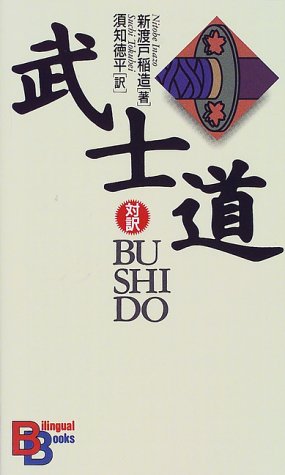

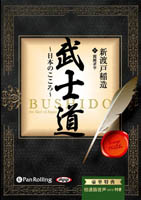 朗読,Read 朗読,Read
|
















 朗読,Read
朗読,Read
















 朗読,Read
朗読,Read